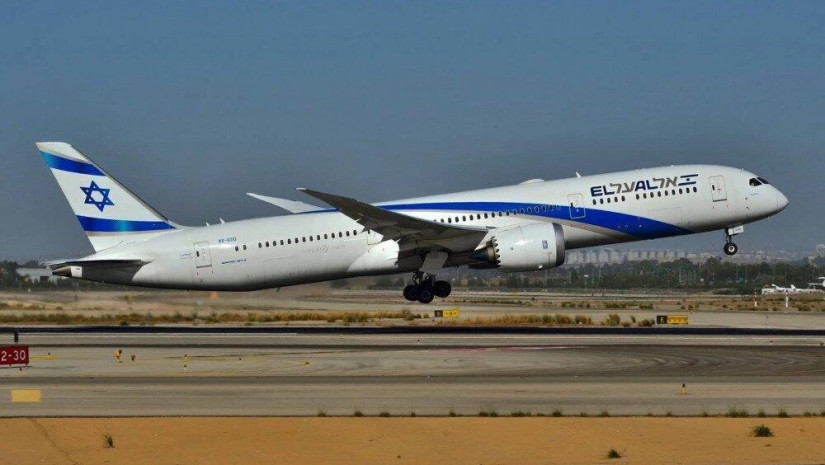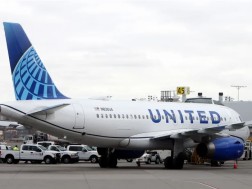Israeli airlines are facing new waves of mass layoffs and potential collapse as the global aviation market continues to be pummeled by the COVID-19 pandemic.
With long lists of travel restrictions and dashed dreams for summer tourism due to the emergence of the delta variant, millions around the world are in immediate danger of losing their jobs.
With long lists of travel restrictions and dashed dreams for summer tourism due to the emergence of the delta variant, millions around the world are in immediate danger of losing their jobs.
According to Professor Yaniv Poria, a tourism expert from Ben-Gurion University’s Hotel and Tourism Management Department and academic director of its Eilat Campus, the travel sector has changed forever as a result of the coronavirus, JPOST (The Jerusalem Post) reports.
“I predict that our DNA, as far as the tourism industry goes, has been changed,” Poria told The Media Line. “This could be the end of travel as we knew it.” “Forget about the tourism of the 20th century,” he said. “It was so easy to move from one place to another, and now it’s also so easy for the coronavirus to move from one place to another.”
Poria estimates that airlines globally will be forced to significantly downsize and fire between 50% and 70% of their employees in the coming months. They will then have to engage in hiring sprees and bring on board workers temporarily in between pandemic waves and during the traditional peak tourism summer months.
“In general, the industry will substantially shrink and companies will do the most to minimize the number of employees,” he warned. “Many of the people working in this industry will, unfortunately, have to find a new job.”
Poria’s predictions could materialize quicker than expected. Italian airline Alitalia on Wednesday announced that it would officially shut down in the coming weeks, and that all flights from October 15 onward would be canceled.
Once Italy’s largest carrier, Alitalia has suffered from financial setbacks for several years. However, the situation was severely exacerbated by the coronavirus; in fact, the airline posted a loss of over $500 million in the first half of 2020.
Other airlines did not fare any better. Air France-KLM reported a loss of $8.33 billion in 2020 and Wizz Air logged a loss of roughly $675 million from March 2020 to March 2021. Some airlines did receive substantial government assistance. Air France-KLM received some $12.2 billion in government loans and guarantees, while Lufthansa received $10.6 billion in aid.
Poria believes that companies focusing on business and medical tourism will have greater odds of surviving the crisis than those focused on the leisure arena. As the pandemic marches on, he said, “people will decide whether to take the risk [of traveling] and many of us will decide to stay at home.”
Traveling will no longer be as simple a decision as it once was, with tourists regularly being expected to provide test results, vaccination certificates and other health declarations before they can take off. The psychological impact of the pandemic has fundamentally impacted the sector, Poria notes. “We will fly less,” he said.
With ongoing restrictions and quarantine requirements for nearly all travelers, most Israelis are not flying abroad at the moment and many have delayed their travel plans indefinitely.
The crisis has hit Israeli airlines particularly hard. The Histadrut workers’ union formally declared a labor dispute and said that airport workers, as well as those employed by Israeli airlines, could go on strike come September 6 if the Finance Ministry does not agree to compensate workers that have been laid off.
Histadrut Transport Workers Union Chairman Avi Edery told The Media Line that the union had initially agreed that 3,000 workers could be laid off in order to cut costs. However, companies are looking to let go of hundreds more employees and the government has done little to help the situation.
“Now we have a new wave of layoffs, no agreement, and no financial aid for companies,” Edery said. “We’re on the cusp of bankruptcy.” Some 20,000 people work in the Israeli airline and airport sector. “The air travel sector is critical,” he said. “If Israel had no aviation industry it would be a risk for its national interests.”
The Finance Ministry on Sunday agreed to provide assistance packages in the form of loan extensions for Israeli airlines El Al, Arkia and Israir. The ministry suggested a $150 million loan for El Al, Israel’s national air carrier, in addition to $20 million for Arkia and Israir. However, Edery said that the Histadrut has already rejected the offer. “El Al is in danger and the government doesn’t care,” he said. “There won’t even be salaries to pay workers in September.”
Others also laid the blame for the scope of the crisis on government action and inaction. “On the one hand, they are saying we are not going into lockdown and therefore there won’t be any compensation for businesses that are crumbling, but on the other hand they are also telling the public that they shouldn’t travel and making it difficult for them to do so,” a source in the travel sector, who asked to remain anonymous, told The Media Line.
Israel has not treated aviation as a strategic asset and the situation is dire at the moment, she warned. “Travel companies did not receive any financial aid from the government … It’s a very complicated situation,” she said.
















